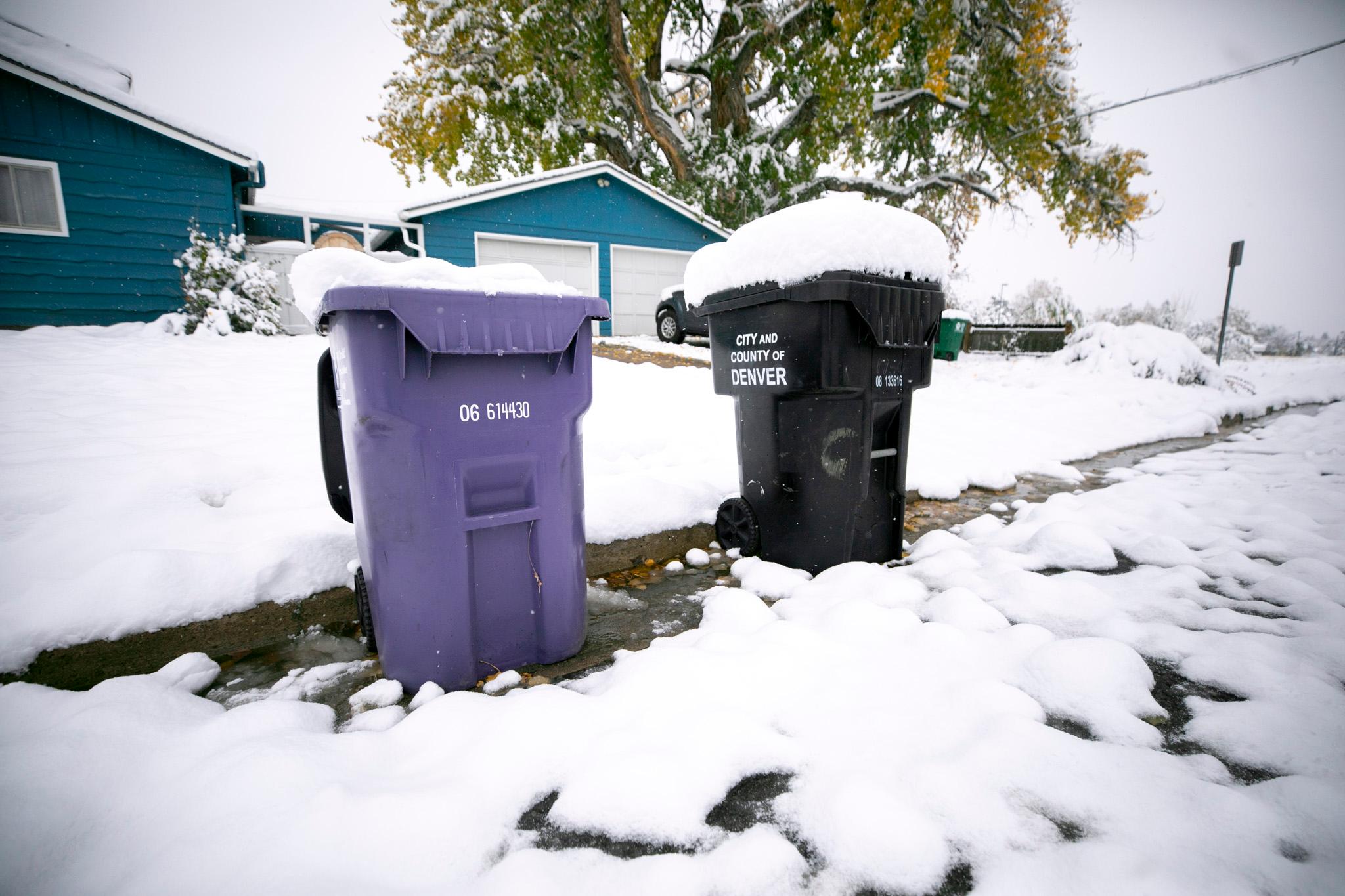The city’s collective alarm clock — the sound of trash trucks grinding through the alley – could begin an hour earlier under a proposal Denver City Council will vote on in the coming weeks.
Currently, trash, recycling and composting can be picked up between 7 a.m. and 10 p.m. But the city now is proposing a legal change that would allow an earlier start time: 6 a.m.
It’s part of an overhaul of the city’s noise ordinances, which set limits on how much noise you can make, when and where.
Don't expect a change to the trash schedule just yet.
The new noise ordinance still has to be approved by the council.
Additionally, the city Department of Transportation and Infrastructure — which runs the trash trucks — doesn’t have any immediate plans to start rolling earlier, said spokesperson Cynthia Karvaski.
The city will stick with a 7 a.m. start time for the near future, “even if the ordinance changes are approved,” she wrote in an email.
So why change the trash collection time?
The city’s getting too busy in the morning.
“The alleys are getting a lot more crowded, and they're getting plugged up a lot earlier now than what they have in the past,” health department staffer Brendan Doyle told city council’s Safety, Housing, Education and Homelessness Committee on Wednesday morning. “Another issue is that waste collection around schools at 7 a.m. conflicts with students arriving.”
A lot of the city’s garbage, recycling and composting is hauled by private contractors. They have complained that the current 7 a.m. start time isn’t safe.
“As the city has grown, waste haulers have expressed concerns about safety, including in school zones, access to alleys, safety concerns with vehicle traffic, foot traffic, and general construction activity outside of early morning hours,” Denver health department spokesperson Amber Campbell wrote in an email.
She continued: “Allowing for collection to begin one hour earlier is a measured approach, especially in high-density areas given the expected increase of waste stream activities and required composting, which Denver voters overwhelmingly approved in the Waste No More Initiative that passed in November 2022.”
That law mandated recycling and composting in apartment and office buildings.
“One thing I want to get very clear is that with this ordinance change, we don't anticipate making any service changes on this,” DOTI’s Nicholas Williams told the city council committee. “So even though we'll have the option to start at 6 a.m. we will not be making any service changes.”
If DOTI were to do earlier trash pickup times, it would communicate that in advance with both city council and residents.
Councilmember Kevin Flynn said he’s received complaints from residents about how early waste pickup happens now. Making pickup even earlier would not address those.
Originally, city staffers considered allowing waste collection to start downtown even earlier, at 5 a.m., but that proposal has been scrapped.
The changes to the noise ordinance go far beyond trash removal.
Denver has grown a lot in the past 17 years, but the city’s noise ordinance has seen no significant changes since 2008.
Currently, the city defines noise this way: “Sound that is unwanted and that causes or tends to cause adverse psychological or physiological effects on human beings.”
That definition’s awfully subjective.
Under the proposed changes, this would be the new definition: “Sound that is unwanted and that exceeds the sound pressure levels permitted in this chapter or is otherwise prohibited.”
In other words, some types of noise would not be allowed above certain decibel levels or at certain times of day.
The updated rules would allow louder music festivals on public land, clear up rules for festivals on private land and change how nighttime construction noise is measured. Compression engine brakes would be banned entirely.
City council’s Safety, Housing, Education and Homeless Committee passed the proposal on to a full council vote.











